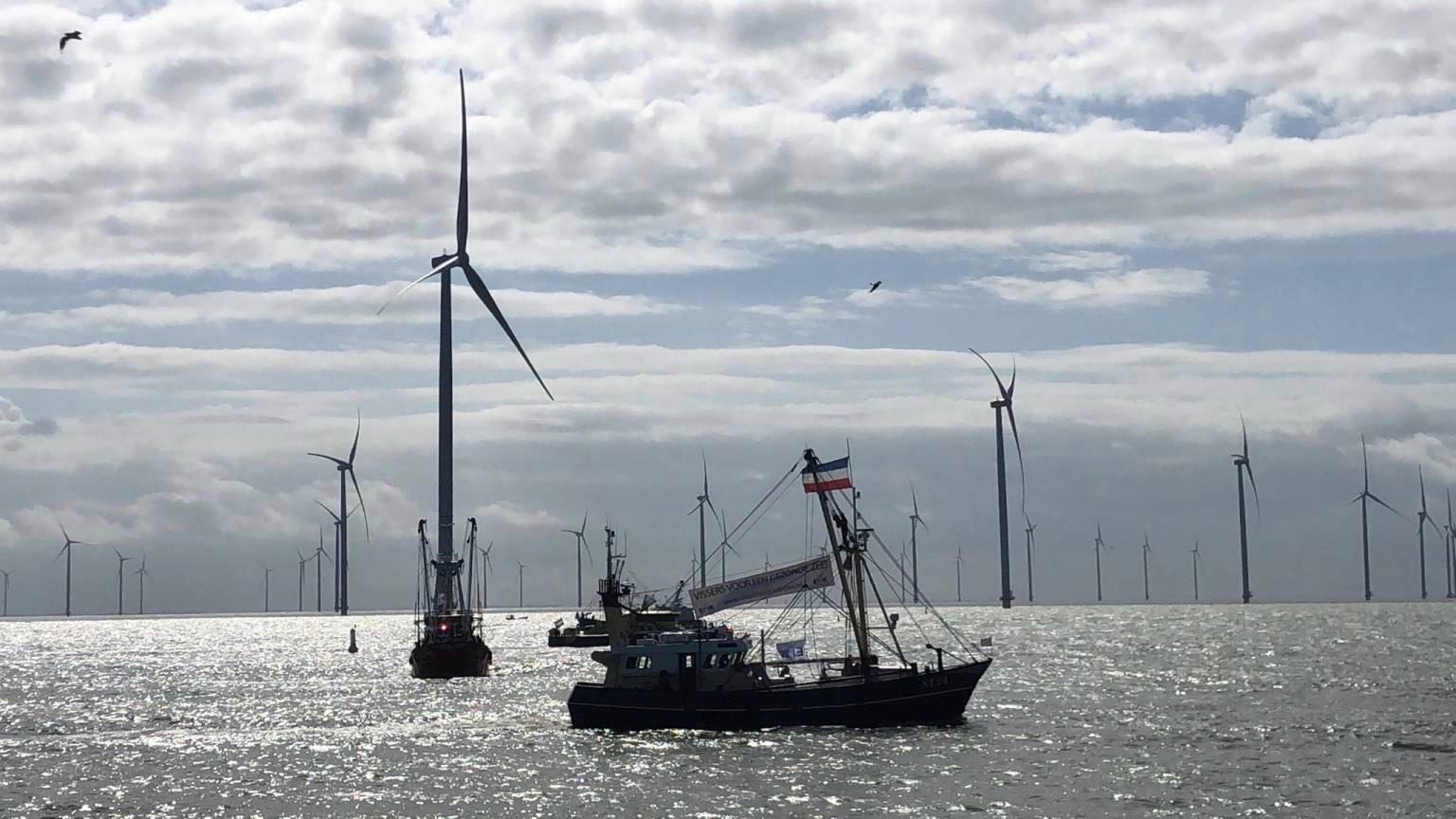Fishermen in various provinces in northern Netherlands have raised serious concern about the future of the industry in the region following the completion of the massive wind farm project in the bay of IJsselmeer. Last week, hundreds of fishermen from Urk and Harderwijk protested in the Fryslân area of the IJsselmeer bay in over 50 fishing vessels against the threat to fishing caused by the wind farm project. The protesting fishermen claimed that their fishing boats have already been banned from entering the vast stretch of the project’s wind turbines, putting their occupation and livelihoods at stake.
According to reports, the Windpark Fryslân (WPF) project, comprising 89 turbines with 4.3 MW generation capacity is likely to be commissioned by this year. The project cost approximately EUR 850 million (USD 994 million) and is possibly the world’s largest inland-water wind farm. The project was undertaken by the Zuiderzeewind consortium, made up of Van Oord and Siemens Gamesa Renewable Energy, and is intended to meet the region’s sustainable energy requirements. Fisherfolk in the region have been demanding the intervention of local and state authorities to address their grievances arising from the project, while making it clear that they are not otherwise opposed to green energy projects.
According to Fischer Dirk Kraak from the Eendracht maakt Kracht (EMK) foundation, “the fishermen are afraid of being banned from the North Sea.”
“We also understand that something has to happen in terms of the energy transition, but why do we only have to pay the bill?” he said.
Anja Keuter, spokesperson for the IJsselmeer fishermen, told the media, “we want to keep fishing. So many areas are closed to fishing by the wind farms that we will soon have no more space. Both in the North Sea and on the IJsselmeer.”
Keuter also claimed that fishermen in the region are yet to receive any assistance from the EUR 119 million (USD 139.46 million) promised by the Dutch government to rehabilitate fishermen and make the fishing industry more sustainable. Last year, the Dutch government promised a total of EUR 200 million (USD 234.39 million) for the reorganization of the North Sea. This was as part of the North Sea Agreement made in consultation with environmentalists, fishing associations, energy companies, sea ports, and other stakeholders. Major projects for wind farms, nature reserves, oil drilling, cargo transport and defense training are envisaged in the Dutch part of the North Sea.
The Fryslân committee of the Socialist Party (SP) had earlier raised concerns about the prospective beneficiaries of the power generated from the WPF. The SP wants to ensure that the energy produced from WPF is available for households and other domestic enterprises in the region, rather than for any business corporations. There have been accusations that various green energy producers in the Netherlands have sold or transferred parts of their business to corporate third parties who consume a major share of the green energy generated from many Dutch wind farms.





